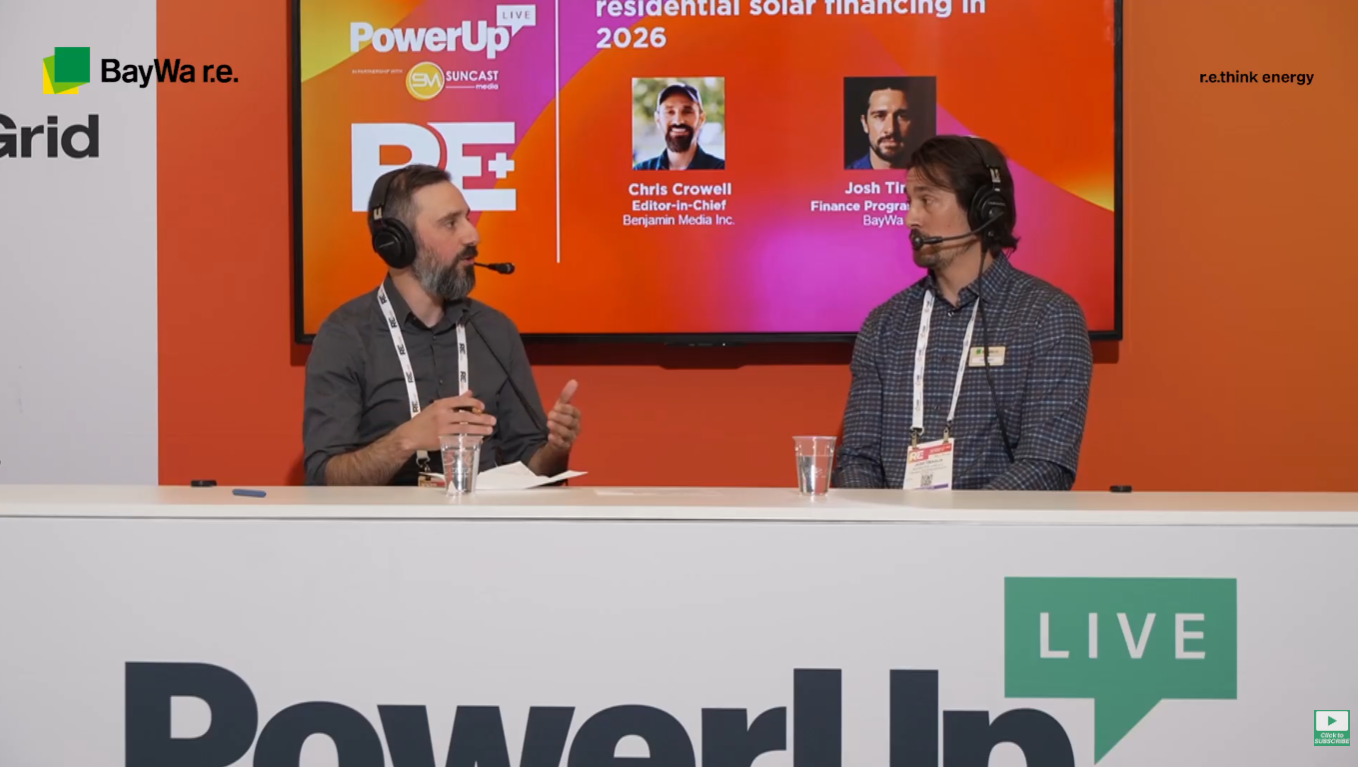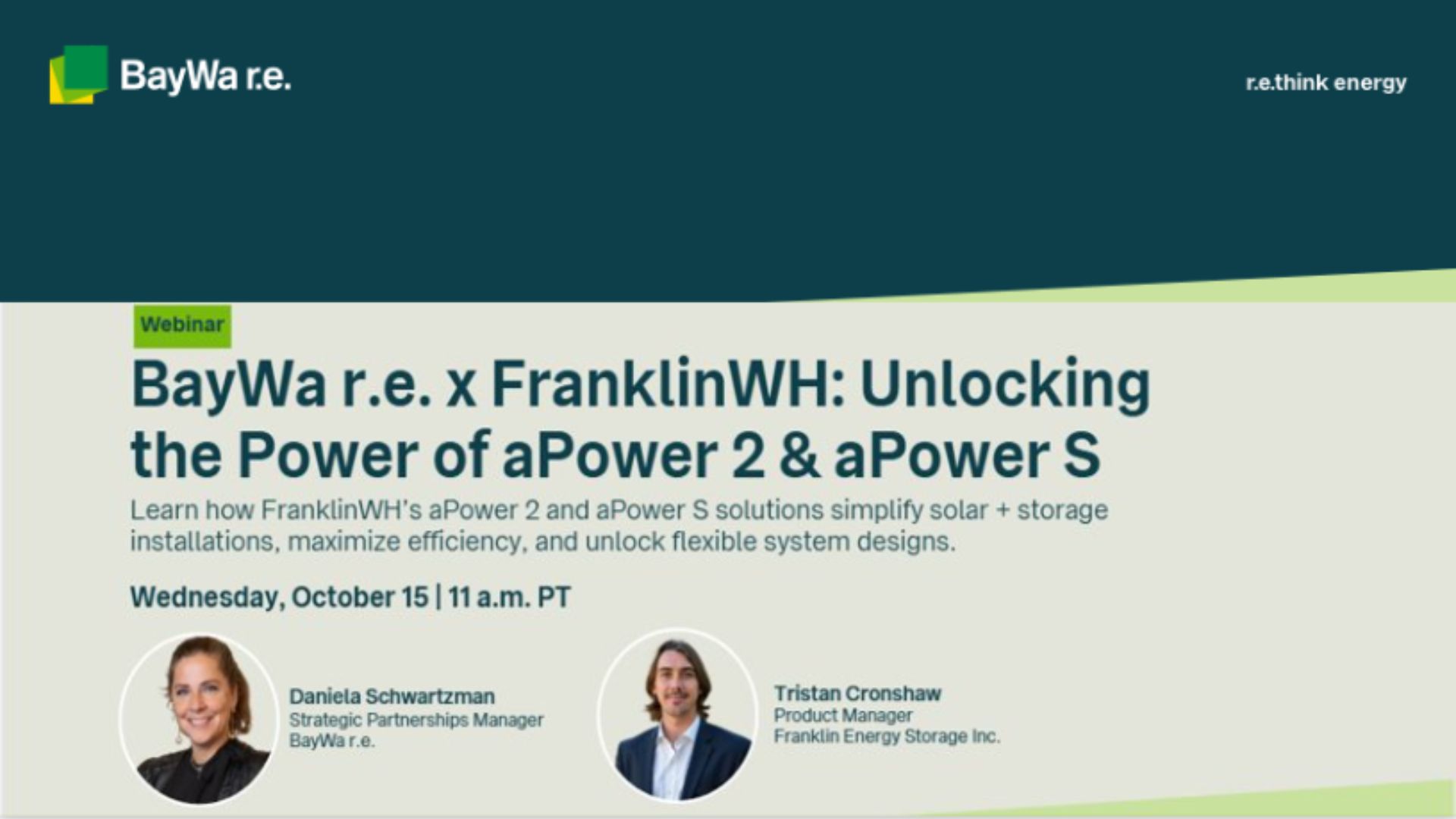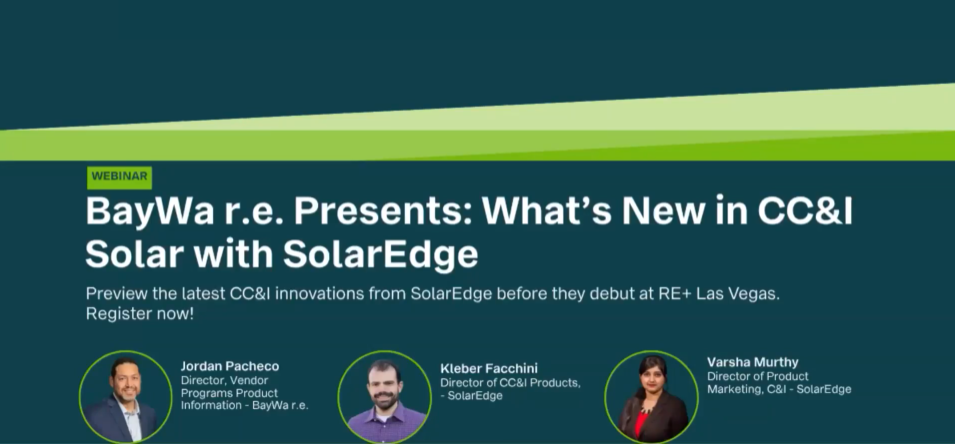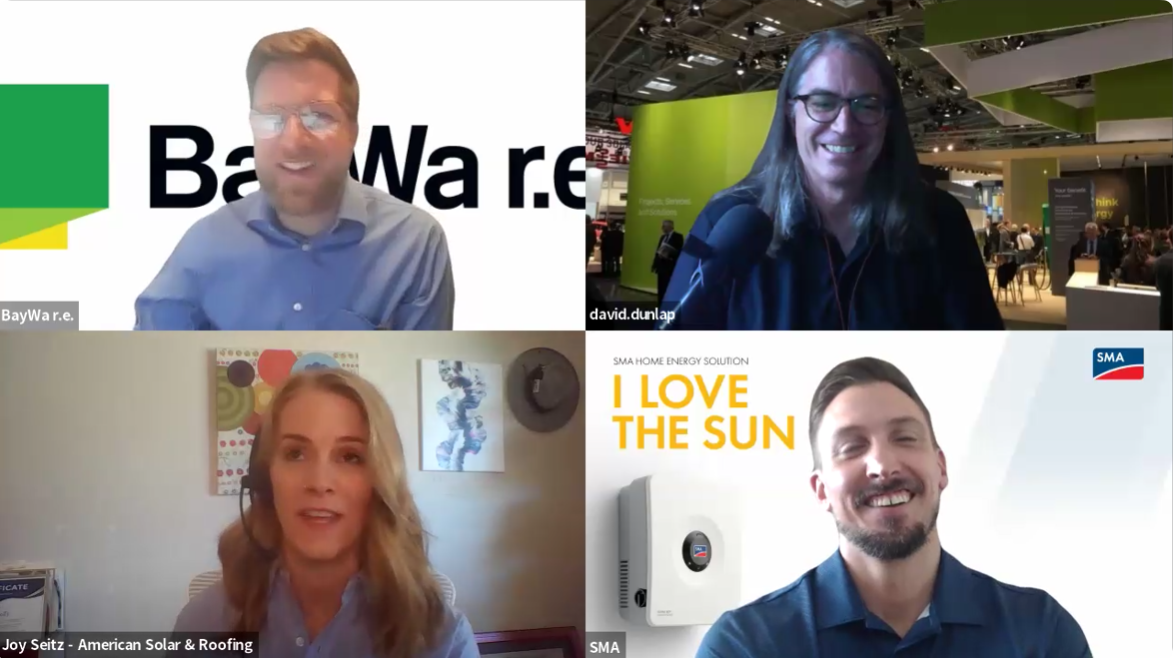Our Webstore is pretty advanced and shows product availability weeks out, but maybe they’re not seeing the LG availability that they’re used to.
What are your thoughts?

David Dunlap [VP of Operations]: (00:14) – There are a few factors at play here but let me start by stating very clearly that our partnership with LG runs long and deep, and we are absolutely continuing that core strength into the future.
We plan and forecast well with LG, and they honor our allocations — even in advance of actual PO’s being loaded into the shipping queue. (1:28) The main drivers behind the availability today are: market constraint (demand is exceeding supply); catchup from COVID effects in March through June and lag time to adjust production volumes and respond to market changes; and the exact timing of manufacturers flushing EOL products out of the channel before new product launches hit U.S. shores. Lastly, BayWa r.e. Solar Systems has its own emphasis and process around customer planning and allocation in advance.

Allocation (02:15)
Tom: Thanks, David. I think we should chat for a few minutes about allocation. How does BayWa r.e. Solar Systems handle allocation for our customers? Can you go into that for us? I’m assuming that it’s not a question of the product just sitting there in our warehouse waiting to be allocated to a specific customer? Can you walk us through how we do allocation? Thanks, David. I think we should chat for a few minutes about allocation. How does BayWa r.e. Solar Systems handle allocation for our customers? Can you go into that for us? I’m assuming that it’s not a question of the product just sitting there in our warehouse waiting to be allocated to a specific customer? Can you walk us through how we do allocation?
David: Fundamentally, it is about the ability and willingness to plan in advance, including making and adhering to forecasts and installation schedules. So, we don’t allocate product for all our customers, but for those that have standardized on certain products with us — and that manage their planning and procurement in advance — we have a process whereby we can assign SO’s in our system to future inbound products, as well as current stock, according to when the orders will need to ship in order to deliver on time to the contractor.
By doing this, we may be able to confidently secure future allocation for an order shipping — say, six weeks from now — without holding current inventory until then. This then allows other customers to purchase product today, without endangering those future orders and stealing their allocation.
Inventory Management (03:38)
Tom: That’s a great overview, thanks. Can you talk to us about how new products get released or old product get transitioned? Does this differ by manufacturer? How does this play into visibility? Can you help me understand how we get from, “I’m hearing about this new product that’s coming, or I hear that there’s a transition happening” to “OK, now I know I can place an order for this.”
David: Manufacturers handle product transitions differently. But, in general, everyone wants to sell through an EOL [end of life] product and inventory before moving over to the newer, exciting, shiny-object launch product.
At the same time, it’s important to highlight and build excitement around new products, including making them available to buy. So, there’s always some nuance in exactly how the sunsetting of one item, and the launch of the new item, overlap. Kind of like two waves in the ocean. There may not be a clean break between them, and there could well be a lengthy overlap as well. It often has to do with how directly the new item is replacing or de-valuing the old, versus just offering a new choice. But, generally speaking, the manufacturer will make some sort of decision around either trying to manage that transition with a clean break in their supply, or they may decide to simply launch the new product according to its own production and certification timeline and allow the sunset and launch a longer overlap.
Imagine that this [overlap] is a decision factor for the manufacturer, as well as for others in the supply chain. BayWa r.e. might, for example, make our own decision about being first in line for access to the new product, but we also might have a goal or target in mind for selling through the older version. We have to weigh those risks and plan accordingly — not only for our own business health but for the health and success of our customers. Sometimes, we have a temporary fogginess, or a period of uncertainty. In those cases, we are waiting for these decisions to play out and get to the point of having clear inbound visibility — with reliable dates for new items — and maybe no longer have excess stock of the older product that looks like clear availability into the future.
Processes (06:19)
Tom: Final question for you. And this is something we talk about a lot internally, and maybe not as much externally! We spend a lot of time at BayWa r.e. Solar Systems focusing on “processes” — you could say that we specialize in processes. Which doesn’t sound revolutionary to a lot of people, but for the distribution business, it’s really important that we focus on our processes. Can you talk about the role of processes, and our continual focus on it, and why it’s important for our customers?
Repeatability and reliability at scale is the name of the game for distribution businesses.
David: Absolutely. Repeatability and reliability at scale is the name of the game for distribution businesses. We put a lot of focus and intention into our processes in order to add value to our customers. We want everyone to be able to manage their own risks and make good decisions about where to spend their time and labor efforts. Every solar contractor is planning and investing in their success, including the efforts they make in procurement. And there are many risks they are trying to control: scheduling projects on time, completing projects on time, keeping their customers happy, meeting the requirements of the financing partner around completion and approval in order to get paid, meeting their own profitability targets for projects.
So, knowing they can confidently plan their work weeks in advance, have confidence that their supplier will ship on time and in full, that their financial goals and risks are being controlled — these all come down to our ability to deliver reliability and performance at scale which are reliant on robust, efficient and effective processes. Going back to allocation as the example, we are absolutely adding value and lowering risk for our customers who plan with us and engage in our allocation process — ensuring on time and in full deliveries — instead of waiting until the last minute to shop for product and just expecting it to be on the shelf ready to go.
Watch our Q&A with David Dunlap on the the solar supply chain:
Continue the Conversation
If you’re a contractor already partnering with BayWa r.e. Solar Systems, we always want to stay updated on your installation schedules and project forecasts. Let’s work together to understand your procurement rhythms and quarterly allocation needs — talk with your regional rep today!
Visit Our Webstore
Everyone can browse our Webstore, but only contractors who partner with BayWa r.e. Solar Systems get exclusive access to our best-in-industry features, including product availability forecasts. Explore our line cards, then connect with our sales reps to learn more.
David joined BayWa r.e. in 2016, after 16 years in residential construction management, where he implemented green building technologies and renewable energy systems at an award-winning design-build firm in Santa Fe, New Mexico. He also spent several years with Honeywell Building Solutions where he developed energy retrofit project solutions in the public sector using Performance Contracting as the primary financial vehicle. His early PV design training came from Solar Energy International and since then he has been an ardent advocate for clean energy adoption and water conservation. In his current role, David leads BayWa r.e.’s product strategy and partnership relations with top-tier solar and storage equipment manufacturers to provide solar installers with products that support their business growth.
David graduated with a degree in Anthropology from Pomona College. He can often be found hiking with his wife and dogs in the New Mexico mountains or making ceramics in his home studio.





